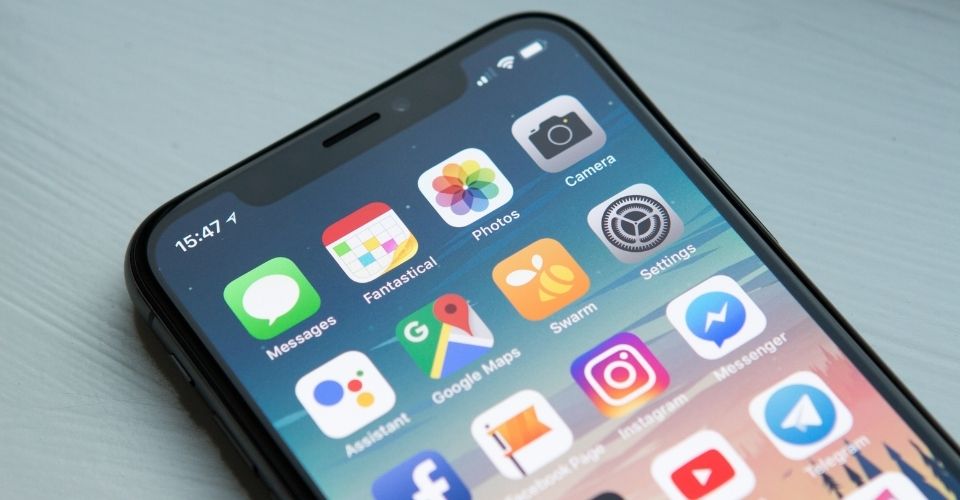By 2021, there will be approximately 7 billion mobile users around the world. With the rise of mCommerce, retailers are speeding up the process of building a mobile app for their consumers. When it comes to accessibility on mobile devices, there are three main types of applications: Native Apps, Hybrid Apps and Web-Based Apps.
Let’s dive down to know the characteristics of each type and find out what’s the most suitable choice for your business.
Overview
Native App

Native apps are applications that are developed using a specific programming language for specific devices, IOS or Android. The technology used here is Objective C or Swift to write IOS, and Java is for Android apps.
Native apps are distributed through app stores like Google Play or Apple Store. Working properly online and offline, they can access device features such as camera, PS, accelerometer, contact list, compass, Application Programming Interface, notification system, swipe gestures, etc.
Web-Based App

Unlike computer-based software programs that run on the operating system of the device, a Web-Based App is an application that uses a web browser to perform functionally. Progressive Web App (PWA) is the modified version of the traditional Web-Based App which is quicker and more responsive.
The technology used here is in-built HTML, CSS, platform-agnostic and JavaScript. They are distributed through web browsers thanks to a reusable code base that is distributed across multiple platforms. Web-Based apps include features like creating documents, sharing information, collaborating on common documents and projects.
Hybrid App

A hybrid app is a combination of both Native App and Web-Based App. The technology is built on HTML, CSS, platform-agnostic and JavaScript. Hybrid Apps can easily access the Application Programming Interface. This is distributed through app stores and its reusable codebase is distributed across multiple platforms.
►►►► Please visit our products: digital banking, situation analysis, Shopify markets, Vietnam Photography Tour, Photography Tour Guide Viet Nam, supply chain operations management, fintech ai, Multi Store POS, Woocommerce POS, Mobile POS, White label POS, POS Reseller, Beauty Supply Store POS, Retail POS and Vape shop POS
Hybrid Apps can have access to the phone’s hardware-based functions, all thanks to WebView. WebView is a chrome browser window that is configured to run full screen.
Differences Among Web-Based App Vs Hybrid App Vs Native App
Let’s compare these apps in different categories
- Device Features: Native App and Hybrid App are better than Web-Based App as they access full device-specific features.
- Offline Functioning: Native App is an ideal choice if offline functioning is a priority.
- Speed: Native App is the fastest and most responsive when compared to other apps. It utilises the platform’s core programming language and Application Programming Interface.
- Installation: All the apps have limitations in this field. Bookmarking a Web-Based App is simpler than downloading an app from the store. Installation of other apps is a little irritating as users have to justify the interaction cost.
- Maintenance: Web-Based App and Hybrid App maintenance are much easier than the Native App as it deals with different codebases for multiple platforms.
- Platform Independence: Platform independence is way more superior for Hybrid App and Web-Based App due to reusable codebases when compared with native apps.
- Price/Cost: Cost for all these apps depend on its various features and platforms it is built on. Hybrid App is most affordable when compared to other apps, due to its basic functions.
- Content Restrictions, Approval Process and Tax: Web-Based App is free from all those things, whereas other apps have to go through the approval process and content restrictions by app stores.
- User Interface: Native App has a greater user interface experience than other apps.
- Discoverability: Web-Based Apps have more discoverability due to search engines when compared to other apps.
In conclusion,
Before choosing the right app for your company, make sure you go through its features accurately. As the app type can make or break the success of your company. We hope this Hybrid App Vs Native App Vs Web-Based App comparison will help you choose a suitable mobile app for your retail business.
If you’re looking for an omnichannel solution in mobile apps, take a look at ConnectPOS PWA Consumer App. Being compatible with our POS system, the app lets you scan product barcodes and checkout right in the app. It also notifies users whenever there’re new promotion campaigns available online and in-store.
Click here to explore the complete omnichannel ecosystem for your retail business.
